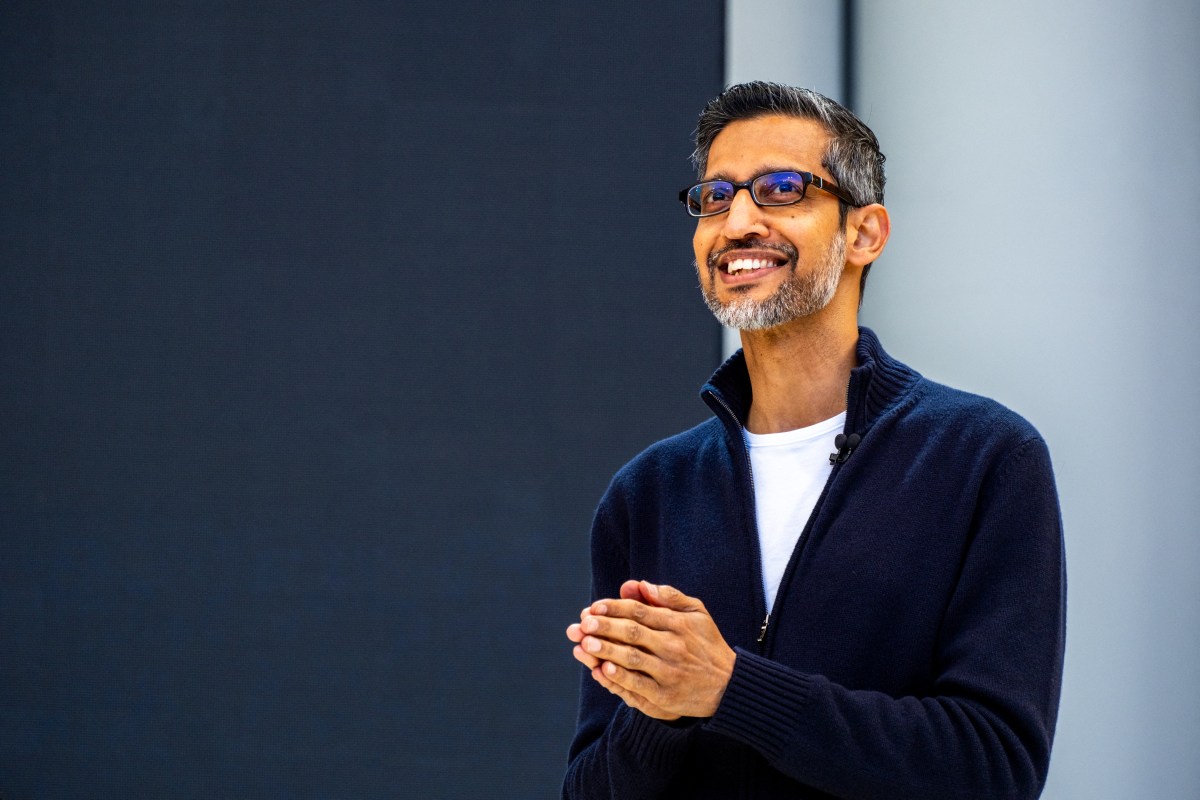For the last two decades, Google has brought people a list of algorithmically-selected links from the web for any given search query. At I/O 2025, Google made clear that the concept of Search is firmly in its rearview mirror.
On Tuesday, Google CEO Sundar Pichai and his executives presented new ways to bring users the web, this time intermediated through a series of AI agents.
“We couldn’t be more excited about this chapter of Google search where you can truly ask anything […] your simplest and hardest questions, your deepest research, your personalized shopping needs,” said Google’s VP of Search, Liz Reid, onstage at I/O. “We believe AI will be the most powerful engine for discovery that the web has ever seen.”
The largest announcement of I/O was that Google now offers AI mode to every Search user in the United States. This gives hundreds of millions of people a button to converse with an AI agent that will visit web pages, summarize them any way they’d like, or even help them shop. With Project Mariner, Google is delivering an even more hands-off AI agent to its Ultra subscribers. That agent will handle 10 different tasks simultaneously, visiting web pages and clicking around on those pages while users are free to plug away on something else altogether.
Google is also making its Deep Research agent, which visits dozens of relevant websites and generates thorough research reports, more personalized and is connecting it to your Gmail and Drive. In a parallel development, the company is further integrating Project Astra — the company’s multimodal, real-time AI experience — into Search and Gemini, giving users more ways to verbally speak with an AI agent and let it see what they see.
I could go on, but you get the idea — AI agents dominated I/O 2025.
The rise of ChatGPT has forced an AI reckoning at Google, causing the company to rethink how it brings users information from the web. This reckoning really started at last year’s I/O, when Google introduced AI overviews into Search, a launch that was overshadowed by its embarrassing hallucinations. The rollout of AI overviews made it seem as if AI was not ready for primetime, and that Search as we know it was here to stay.
But at I/O 2025, Google presented a more compelling, fleshed-out approach to how AI would reshape Search, and thus, the web. The company’s new vision suggests that the future of the web, and the company, involves AI agents fetching information from the web and presenting it to users in whatever way they’d like.
The idea that Google’s AI agents could replace Search is a compelling one, especially because Google is trying to lay an infrastructure for AI agents. Google announced on Tuesday that the SDK for Gemini models will now natively support Anthropic’s MCP, an increasingly popular standard for connecting agents to data sources across the internet.
Google isn’t alone in this shift. At a different tech conference this week, Microsoft CTO Kevin Scott laid out his own vision for an “open agentic web,” in which agents take actions on users’ behalf across the internet. Scott noted that a key feature to make this possible would be the plumbing that connects these agents to each other and data sources — namely, Google’s Agent2Agent protocol and Anthropic’s MCP.
Despite the enthusiasm, as Ben Thompson notes in Stratechery, the agentic web has its problems. For instance, Thompson notes that if Google sends AI agents to websites instead of people, that largely breaks the ad-supported model of the internet.
The impacts could vary across industries. Agents may not be a problem for companies that sell goods or services on the internet, such as DoorDash or Ticketmaster — in fact, these companies are embracing agents as a new platform to reach customers. However, the same can’t be said for publishers, which are now fighting with AI agents for eyeballs.
During I/O, a Google communications leader told me that “human attention is the only truly finite resource,” and the company’s launch of AI agents aims to give users more of their time back. That may all pan out, but AI summaries of articles seem likely to take dollars away from publishers — and potentially devastate the very content creation on which these AI systems depend.
Further, there’s a lingering problem with AI systems around hallucinations — their tendency to make stuff up and present it as fact — which became embarrassingly clear with Google’s launch of AI overviews. Speaking onstage Tuesday, DeepMind CEO Demis Hassabis even raised concerns about the consistency of AI models.
“You can easily, within a few minutes, find some obvious flaws with [AI chatbots] — some high school math thing that it doesn’t solve, some basic game it can’t play,” said Hassabis. “It’s not very difficult to find those holes in the system. For me, for something to be called AGI, it would need to be much more consistent across the board.”
The consequences could be far-reaching. Widespread hallucinations could lead users to be more distrustful of information they encounter on the web. They could also sow misinformation among users. Either outcome is not ideal.
Google doesn’t seem to be waiting for ad-supported businesses or AI models to catch up — the company is pushing ahead with AI agents anyway. Google has likely done more than any other company to steward the web as we know it. But in what could prove a major turning point, the company’s conception of the web seems to be reorienting around AI agents.











